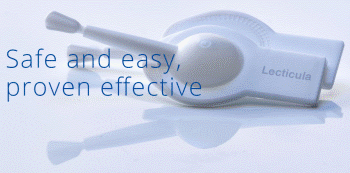- MetP Pharma`s Nascum®-VIREX is evaluated for its potential to prevent virus entry at the mucous membrane of the nose
- Nascum® attracts and blocks airborne particles such as in industrial dust and air pollution
- Airborne particles could spread the novel corona virus SARS-CoV-2 (1)
- Nascum®-VIREX is immediately available
EMMETTEN, Switzerland, August 24, 2020 / B3C newswire / -- MetP® Pharma AG today announced that its nasal gel Nascum®-VIREX will be evaluated for its protective effect against viral infection. The aim of the study is to test the effect of acute dose apical exposure of Nascum®-VIREX upon viral infection with Human Rhinovirus 16 (HRV-A16) using fully differentiated human nasal epithelial cells. Time points from zero to 96 hours are studied for the effect of the nasal gel on virus replication, toxicity markers, cilia and cytokines. The results of the study are expected at the end of October 2020.
Nascum®-VIREX is an oil-based nasal gel and a class 1 medical device according to Directive 2007/47/EC which has especially been developed to cover the nasal mucosa for several hours. The nasal gel is highly bio-adhesive and forms a physical barrier in the nasal cavity to significantly trap airborne particles by a mechanical effect. Moreover, through its positive charge, the gel binds negatively charged pathogens and viruses and thus shields the nasal cells from inhaled airborne particles through an electrostatic effect (Coulomb attraction).
The nasal gel might help eliminate pathogens before they enter the body
The nasal cavity is likely the major site of entry of pathogens like SARS-CoV-2 since most of the inhaled air enters the body through the nose. However, the virus must first overcome a 10–15 µm thick mucus layer in the nose which also contains numerous substances secreted by epithelial cells with inhibitory activity to inhaled pathogens and which is cleared and replenished by the basal epithelium many times per day. Nascum®-VIREX supports the mucus in capturing the virus before it infects the epithelium and the microscopic hair-like cilia move the gel-covered mucus in the back of the throat where it is then swallowed and destroyed by the acid in the stomach, or coughed up or sneezed out.
The barrier properties of mucus are often diminished by pre-existing diseases, medications, life style and age. Also, the pathogen itself may cause the disruption of the ciliated epithelium or ciliary dyskinesia thus impairing mucociliary clearance which might facilitate viral infection. To prevent virus entry, it is of primary importance to increase the barrier function of the nose.
Dr. Claudia Mattern, Chief Scientific Officer at MetP Pharma comments: “There is no guarantee that there will even be a COVID-19 vaccine and, if so, how long it will protect recipients, quite apart from the fact that it will take several years to develop a safe medication. Nascum®-VIREX is immediately available to reduce or even prevent the virus entry at the mucous membrane of the nose thus helping the patient’s immune system fight the viral infection.”
Nascum®-VIREX is an antiviral-modified version of Nascum®-Plus gel whose robust activity against the transmission noxious particles has already been proved.
Data from a preclinical study with the Nofer Institute of Occupational Medicine has demonstrated that the Nascum® gel layer significantly protects against an increase in serum IgE and the BAL inflammation marker TNFα after exposure to industrial dust (2). In a clinical study with the Fraunhofer Institute for Toxicology and Experimental Medicine, the nasal gel significantly reduced Total Nasal Symptom Score (TNSS) after pollen challenge in an Allergen Challenge Chamber (3). In both studies the nasal gel was well tolerated.
There are already several approaches to reduce the virus load in the nose to be used in addition to masks. However, conventional methods such as sinus rinsing, nasal powders and nasal sprays are not recommended as they (1) have surfaces that can harbor active virus droplets for hours, potentially increasing the spread of the virus (sinus rinsing), (2) create an acidic environment that may induce changes of the nasal mucosa and reduce ciliary beat frequency (nasal powders) or (3) use negatively charged formulations which cannot bind and inactivate viruses as viruses are also negatively charged (nasal sprays). Most recently, masks made of positively charged fibers have been proposed providing capture efficiency due to Coulomb attraction.
For high resolution please click the image.
About MetP® Pharma AG
MetP® Pharma AG is an independent, specialized pharmaceutical R&D company based in Switzerland. The company has developed an advanced and comprehensively patented nose-to-brain drug delivery system allowing to bypass the blood-brain barrier. The company’s internal product development program includes intranasal products for the indications concussion, insomnia, attention deficit hyperactivity disorder (ADHD) and multiple sclerosis (MS). MetP® also provides pharmaceutical development and manufacture services based on its proprietary and worldwide patented intranasal delivery technology.
MetP®’s single-dose nasal applicator Lecticula® was among the finalists for the 2016 CPhI Pharma Award in the category "Excellence in Pharma: Drug Delivery Devices".
Contact
MetP Pharma AG
Dr. Claudia Mattern
CSO
+41-41-618 30 30
This email address is being protected from spambots. You need JavaScript enabled to view it.
(1) Aerosol and Surface Stability of SARS-CoV-2 as Compared with SARS-CoV-1. The New England Journal of Medicine, April 16, 2020; 382:1564-1567. https://www.nejm.org/doi/10.1056/NEJMc2004973
(2) Study at Nofer Institute of Occupational Medicine (NIOM) in Lodz/Poland (scientific Supervision Prof. W. Wqsowicz, head of the Department of Toxicology and Careinogenesis). NIOM is a leading Institute in occupational and environmental health, having the status of a WHO Collaborating Centre.
(3) Struß N, Badorrek P, Mattern C, Mattern U, Hohlfeld JM. The Effect of a Thixotropic Nasal Gel on Nasal Symptoms and Inflammatory Biomarkers in Seasonal Allergic Rhinitis. Int Arch Allergy Immunol. 2020;181(5):385-394.
Keywords: Humans; COVID-19 vaccine; COVID-19; Coronavirus; Nasal Cavity; Adhesives; Rhinovirus; Dust; Virus Internalization; severe acute respiratory syndrome coronavirus 2; Coronavirus Infections; Nasal Mucosa
Published by B3C newswire and shared through Newronic®




